Supporting your business to be Net Zero
Acting sustainably unlocks a host of business benefits:
- Reduced operational costs
- Improved business reputation
- Attracting new customers and satisfying existing customers
- Strengthening employee retention
- Complying with current and future environmental regulations
- Future-proofing your business by increasing resilience
This webpage introduces net zero and offers support for Horsham District businesses looking to plan and deliver sustainable actions.
Below are links for navigation through the available content, resources and contact information.
Local sustainability support initiatives
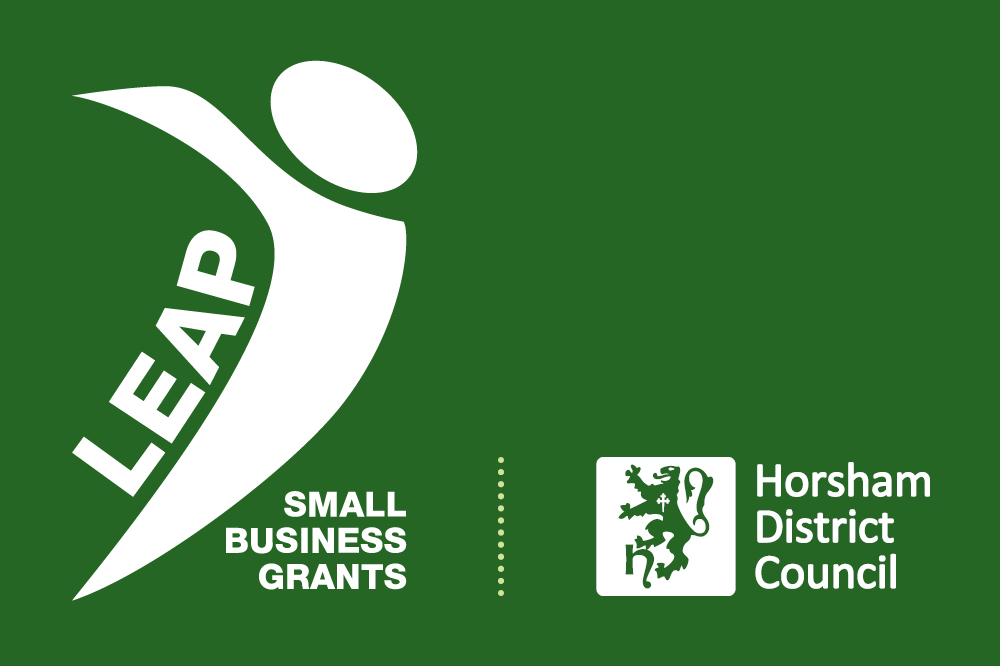
Green LEAP Grants
Access up to £5,000 to help future proof your business and achieve your business’ climate ambitions.
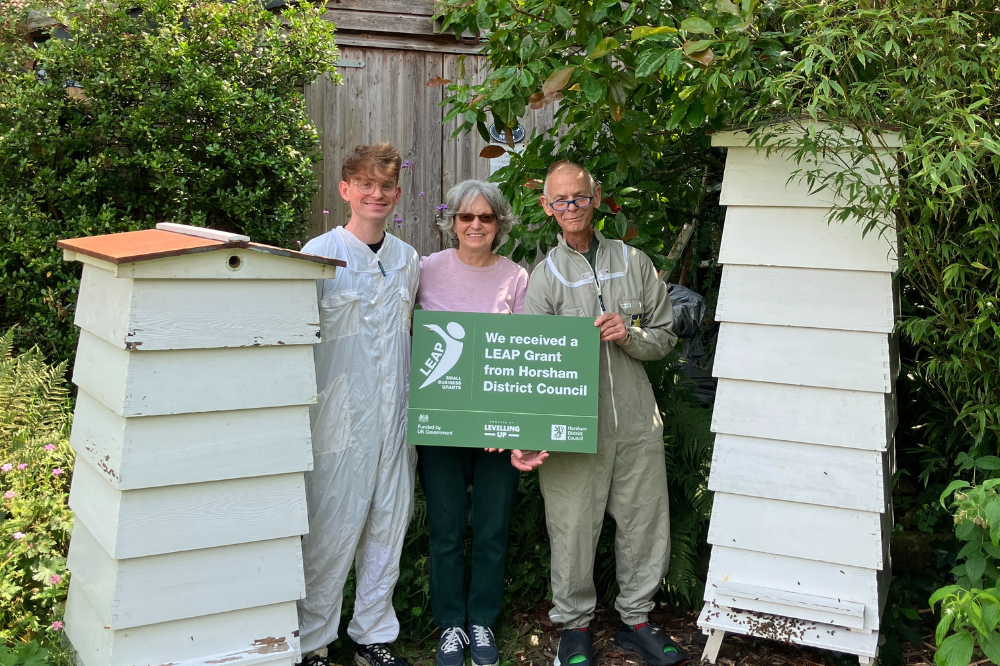
Green business stories
Be inspired by other local businesses.
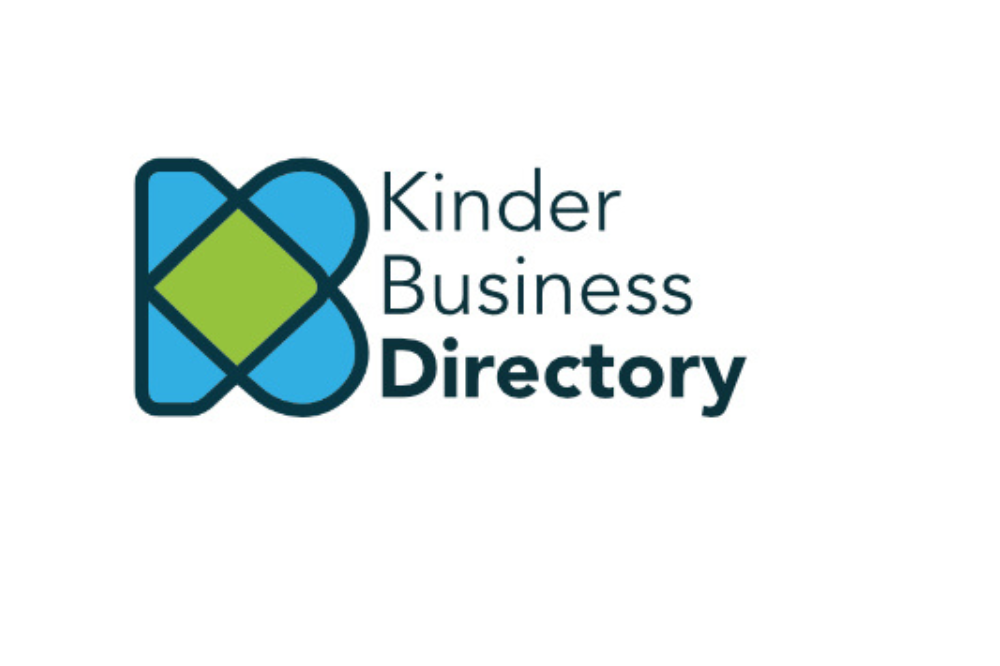
Kinder Business Directory
Find local suppliers for your climate-friendly project.
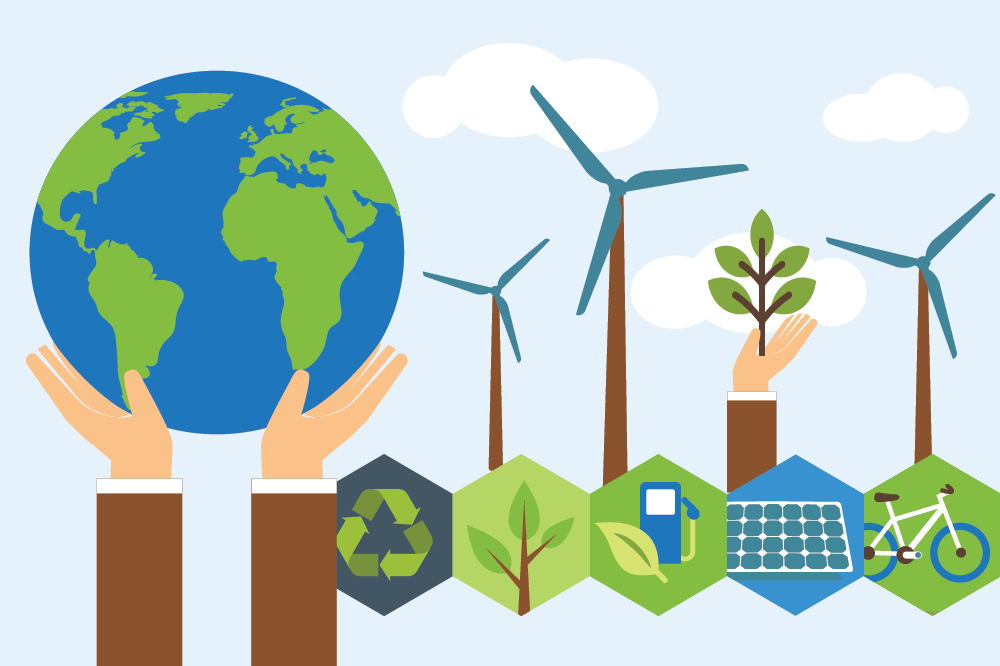
Business Climate Action Newsletter
Subscribe to fortnightly business support email newsletters, including a quarterly Business Climate Action special.
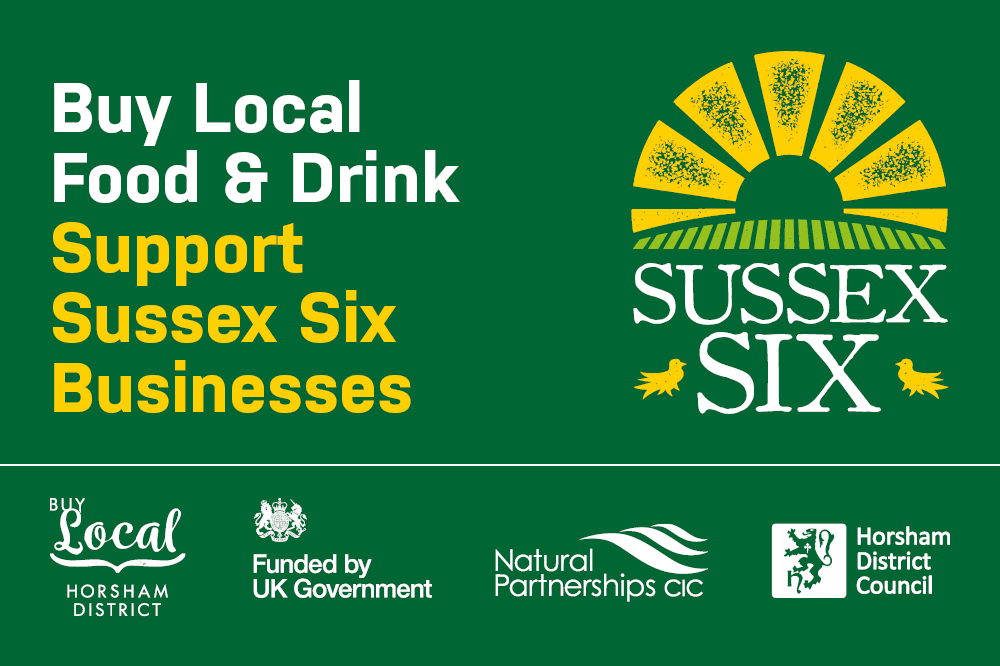
Sussex Six
Join the local food and drink campaign to help you stock more local produce.

easitHORSHAM
Access green travel incentives for your employees.

Let’s Go! Net Zero
Discover sustainability resources, events and a team of Green Business Champions
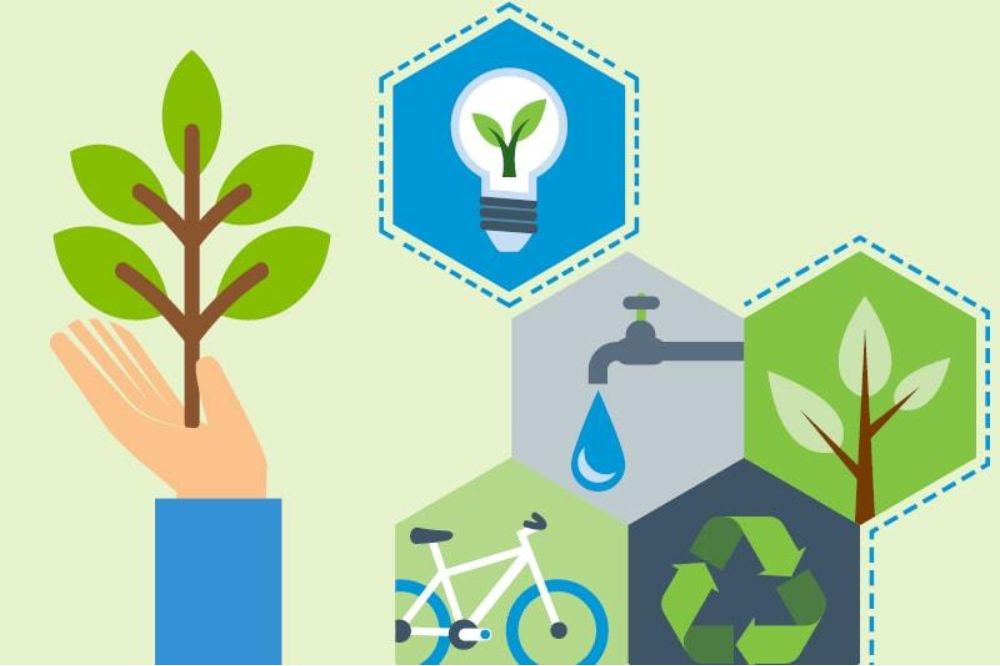
Climate Action Strategy
Read Horsham District’s recommended pathway to become net zero and climate resilient by 2050.
Ideas for action
Responding to climate change and nature decline is a big challenge, but action can start by taking small steps.
There are opportunities for all businesses to make a difference. It might mean targeting a project with immediate financial payback or implementing a change to grow your brand and attract new customers.
Here are some suggestions as a source of inspiration.
Discover business benefits of net zero on the British Business Bank website.
- Learn about science-based targets and the Corporate Net Zero Standard
- Set targets using the Future-Fit Business Benchmark
- Read SME Climate Hub's action guide for setting an emissions target
- Share your climate ambitions with your stakeholders
- Calculate your carbon footprint as a small business - find out why and how on the FSB website
- Find a carbon calculator:
- Audit your business energy consumption. Find tips on the Business Energy Scotland website.
- Consider no cost energy actions, like those listed on the UK Government website.
- Find a green energy supplier. Access tips on the SME Climate Hub.
- Invest in renewable energy. Access tips on the SME Climate Hub.
- Find energy grants, signposted on the Ofgem website.
- What is a circular economy? Find an overview on the Ellen MacArthur Foundation website
- Calculate the cost of your business waste using WRAP's online calculator
Find out how to save water in your business on the Southern Water website and on the Federation of Small Business sustainability hub.
- Access green travel incentives through easitHORSHAM
- Become a cycle friendly employer. Find out how on the Cycling UK website
- Introduce active travel in your workplace. Find out how on the Sustrans website
- Engage employees in climate action. Find tips on the LFCA website
- Invest in green skills. Access BITC's route map to help you
- Learn businesses’ role in nature recovery with Nature's Workforce
- Access landowner advice to restore nature through Sussex Wildlife Trust
- Support the Sussex nature corridor through Weald to Waves
- Conserve South Downs Woodlands
- Become Green South Downs certified
- Make the SME Climate Commitment
- Find out more about Enterprise Nation's Plan it with purpose programme
- Access FSB's Small Business Sustainability Hub
- Watch the workshops from BT's Sustainability for Small Business Programme
Green business stories
See how businesses in Horsham District are adapting business practises to match customer’s demands, save money and reduce their environmental impact.

Bee Cosmetics | Series 2, Episode 2
Meet Bee Cosmetics, a family of beekeepers committed to making natural, sustainable skincare. Sustainability and caring for the environment have always been core objectives for them and in this new addition to our video series they share their green business story.
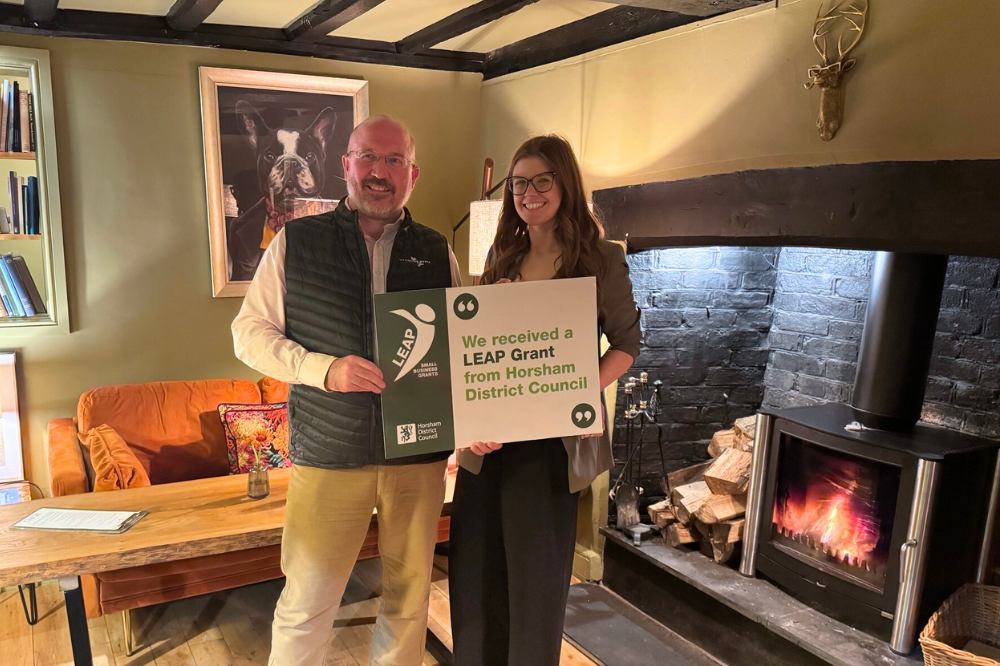
Tottington Manor | Series 2, Episode 1
Meet the team from Tottington Manor in Henfield in this short video where they share their inspiring green business journey including achieving a Green Tourism Award! Find out what started them on their journey and their next steps.
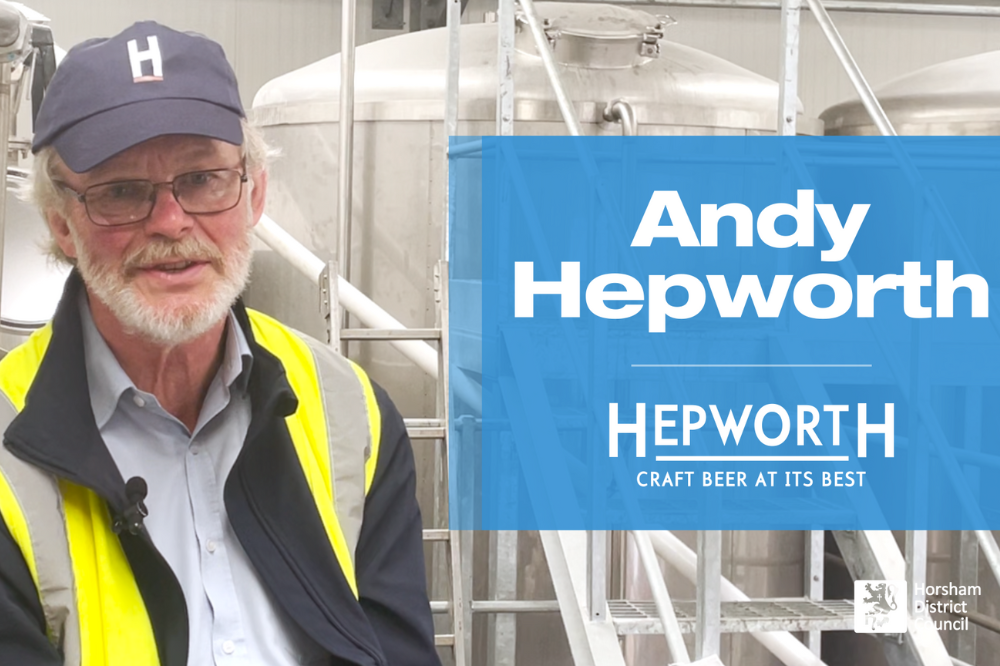
Series 1 | Episodes 1, 2 & 3
Watch Series 1 of our video series, where we spoke to three local businesses about their sustainability journeys: Hepworth Brewery, Tangerines and The Flower Shop.
Get in touch
How can we better support your business in becoming more sustainable? We'd love to hear from you! Email: businessdevelopment@horsham.gov.uk
